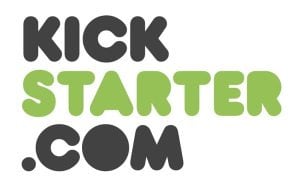It could fund your project, boost our companies, create jobs and maybe even save our entire economy: crowdfunding. Advertised as the go-to digital cash machine if the bank doesn’t get you the money you need, crowdfunding is well on its way to become a major hype. But is it right to push crowdfunding as the answer to your finance, marketing and user experience-needs? No. In fact, each type of crowdfunding has its own specific bubble to burst, so take into consideration the different types and benefits before you get started.
Donations – and reward-based crowdfunding
 If you know what crowdfunding is, you’re sure to know about Kickstarter. Right now, Kickstarter is only available to U.S. and U.K. entrepreneurs but there are lots of alternative platforms where you can pre-sell your product.
If you know what crowdfunding is, you’re sure to know about Kickstarter. Right now, Kickstarter is only available to U.S. and U.K. entrepreneurs but there are lots of alternative platforms where you can pre-sell your product.
Consumers on the one hand experience the platform as one where they can be an early adaptor where they are the first to purchase the product. If they don’t receive anything in reaturn, they are a donator. For the entrepreneur it often means that the product has to be fully ready for production. Entrepreneurs that only have the idea but still need to get from initiation to first (prototype) production, might experience some difficulties as their campaign might not catch flight.
Peer-to-Peer lending
Lending is big. It’s easier for the consumer (lender) to understand. But it’s also suitable for the more experienced crowd that understands the risks of giving away money to a startup that might not be able to pay it back later. The lender is confronted with different projects, each provided with their own “risk status” in order to give them at least some guidance and understanding of the risk they’re taking.
 If you are considering peer-to-peer lending, it’s wise to monitor what the banks’ policies are. Though they are often accused of being impersonal and “only looking at the numbers”, there is a reason why restrictions (like the infamous European legal banking regulations like ‘Basel 3’) have been developed. Additionally, banks have reason to amortize EUR 50.000- loans: en masse. If you are one of the entrepreneurs that understands these regulations but who is being disadvantaged due to this, then peer-to-peer lending could work for you. Remember that you’ll have to pay it back with interest, and sometimes you’ll be severally liable for the entire borrowed sum of money. Societyone in Australia is an example of this type of crowdfunding.
If you are considering peer-to-peer lending, it’s wise to monitor what the banks’ policies are. Though they are often accused of being impersonal and “only looking at the numbers”, there is a reason why restrictions (like the infamous European legal banking regulations like ‘Basel 3’) have been developed. Additionally, banks have reason to amortize EUR 50.000- loans: en masse. If you are one of the entrepreneurs that understands these regulations but who is being disadvantaged due to this, then peer-to-peer lending could work for you. Remember that you’ll have to pay it back with interest, and sometimes you’ll be severally liable for the entire borrowed sum of money. Societyone in Australia is an example of this type of crowdfunding.
Equity-crowdfunding
 Equity-crowdfunding is a tough subtype that demands some explanation. First, it’s still under development in the U.S., as Charles Luzar explains here. It’s not easy for the majority of the crowd to understand that valuation is key in the equity-crowdfunding process and how they will benefit from this. Generally, as a shareholder, the crowd will receive profit either by an increase of the value of the shares they’ve bought, or because they receive revenues or dividends. A combination of these profits is possible. This is what the majority of the crowd is interested in. However, the larger the investor the more likely he is to inquire about your financial data, you as a person, the strategy you choose, etcetera. One example of a CAPS-accredited equity-crowdfunding platform is Symbid located in The Netherlands.
Equity-crowdfunding is a tough subtype that demands some explanation. First, it’s still under development in the U.S., as Charles Luzar explains here. It’s not easy for the majority of the crowd to understand that valuation is key in the equity-crowdfunding process and how they will benefit from this. Generally, as a shareholder, the crowd will receive profit either by an increase of the value of the shares they’ve bought, or because they receive revenues or dividends. A combination of these profits is possible. This is what the majority of the crowd is interested in. However, the larger the investor the more likely he is to inquire about your financial data, you as a person, the strategy you choose, etcetera. One example of a CAPS-accredited equity-crowdfunding platform is Symbid located in The Netherlands.
For the entrepreneurs it’s good to know that the higher the investment, the higher the amount of involvement generally is. Also, the solvability of a startup is increased as raising funds by selling your company balances the debt funding of your company.. In the past, this has also led official lenders such as banks to reconsider loan applications. In fact, traditional institutions like banks, subsidy advisors or the government, are more often suggesting entrepreneurs that they cannot help immediately to consider equity or reward-based crowdfunding. The message? Choose your weapons carefully and strategically for optimal results.
Ludwine Dekker has a background in New Media & Digital Culture (Msc), focusing on web, mobile and games. Additionally, her Bsc “Interactive Media” she majored in “Business & Organization”. Currently she is active as marketing and campaign manager at Symbid where she coaches entrepreneurs and their crowdfunding campaigns. She also frequently writes about finance, entrepreneurship, marketing, digitalization, humanities and more, for platforms like Maxposure, Respons! and other magazines and websites.

